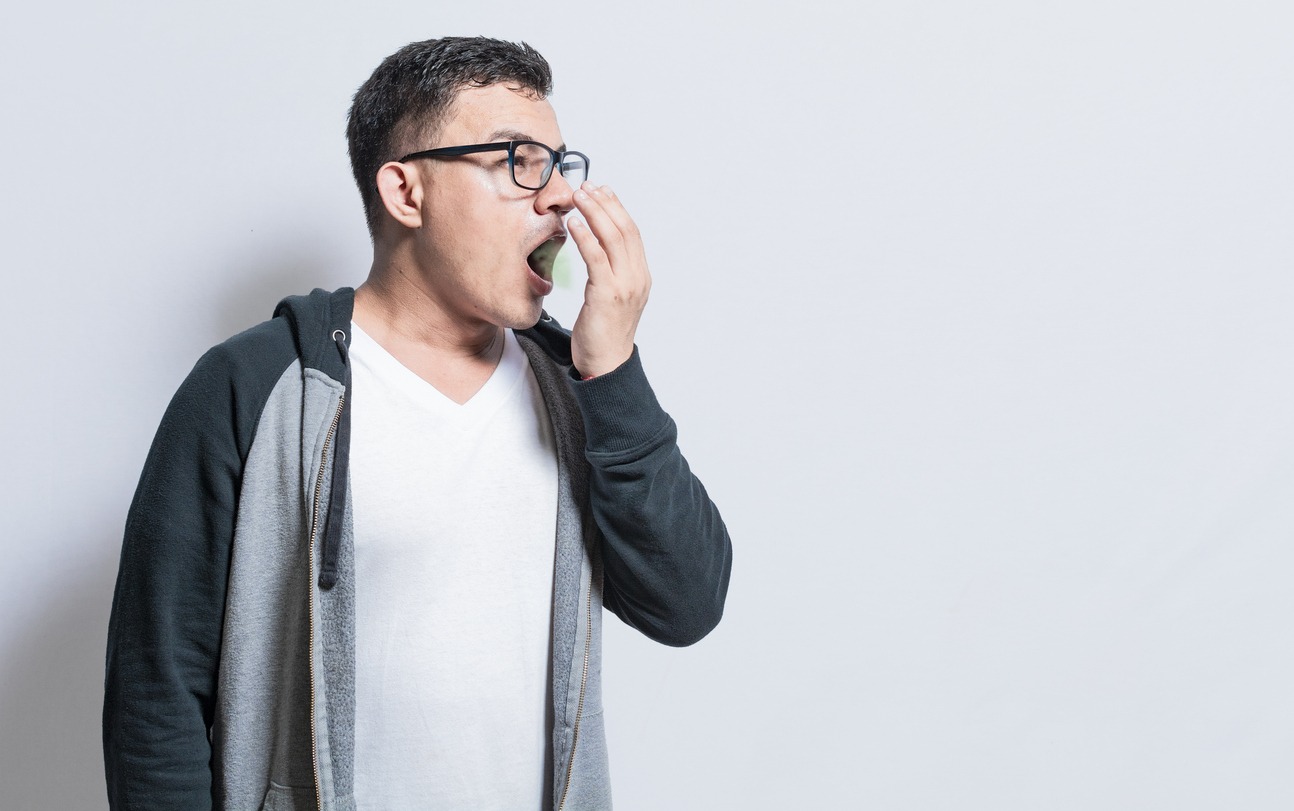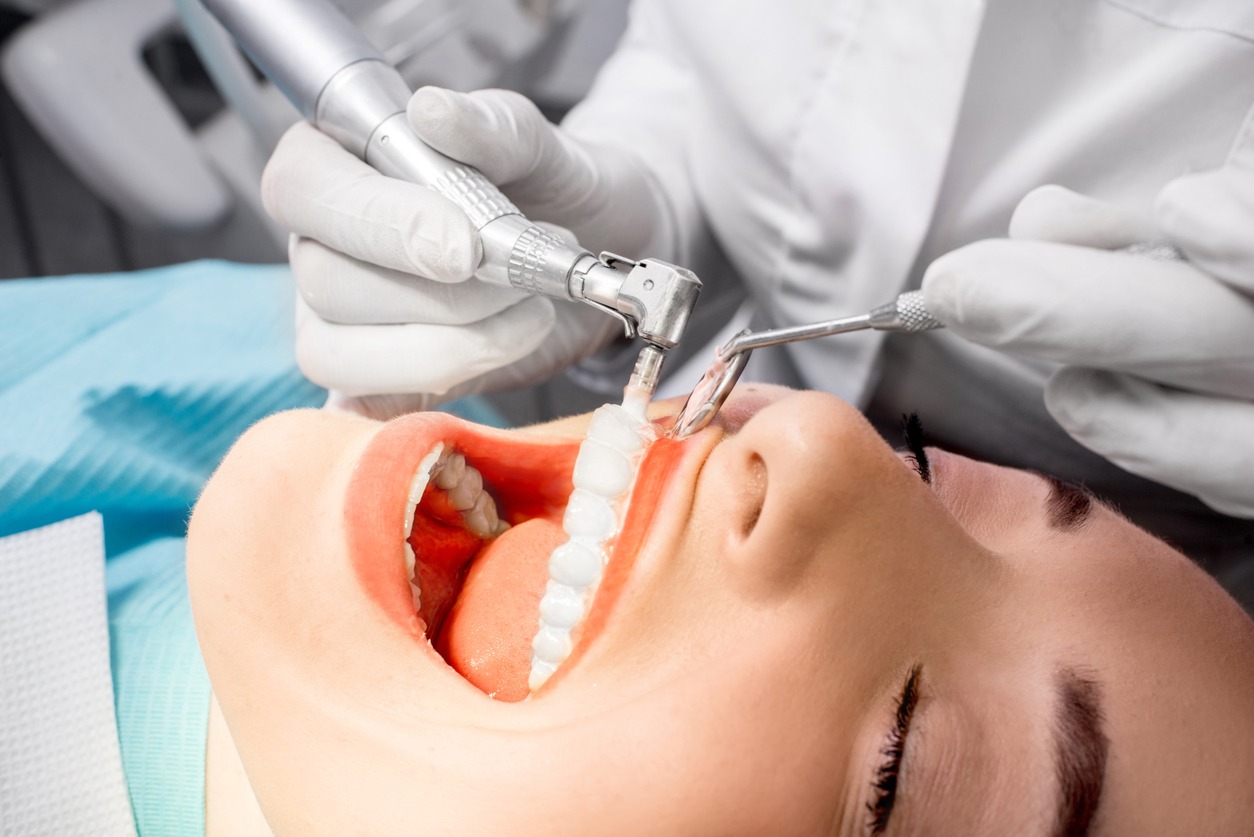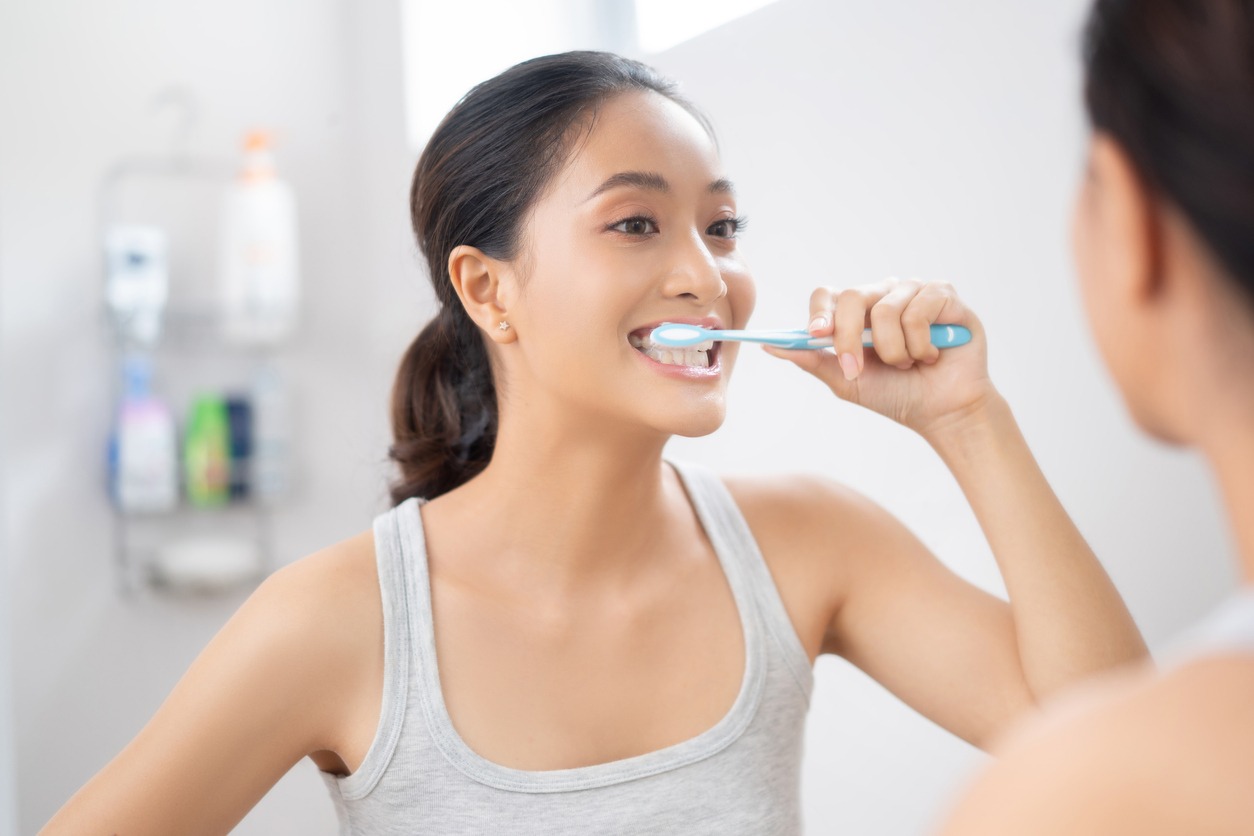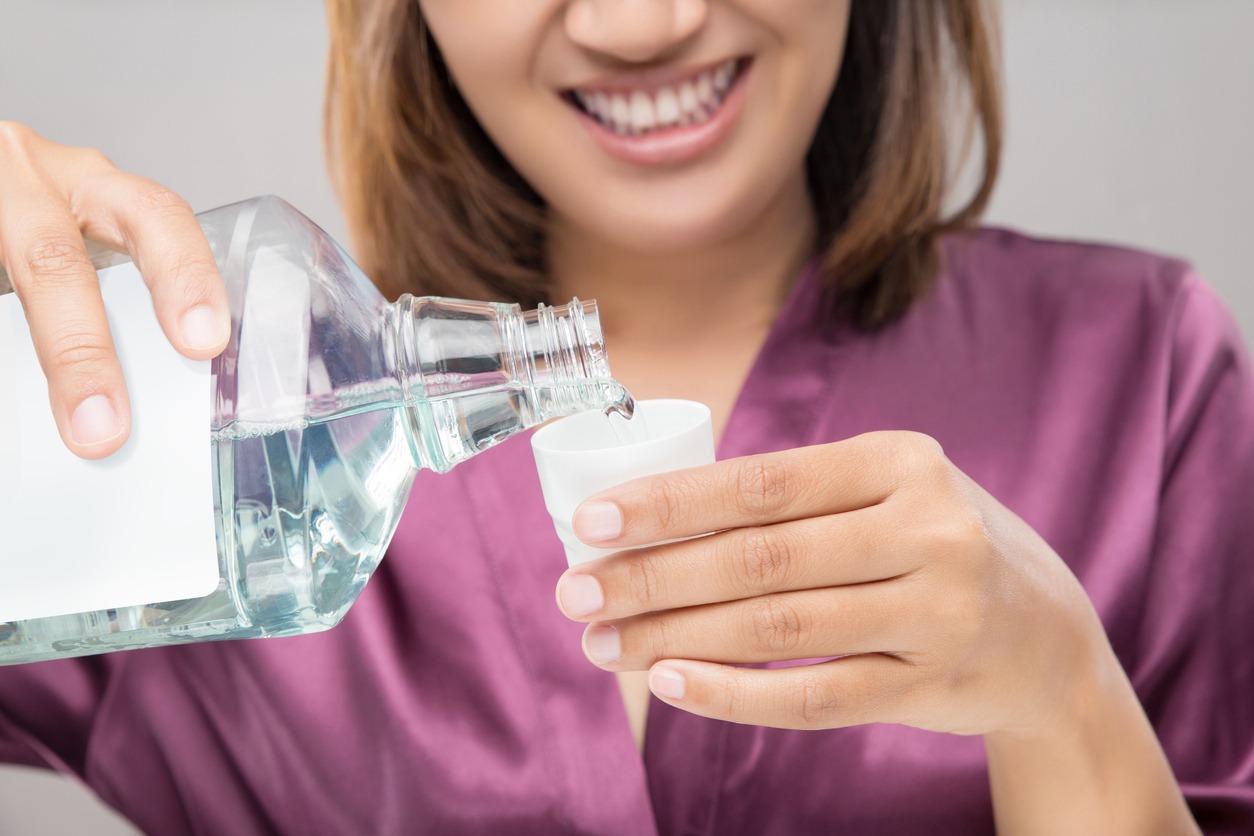Nearly everyone experiences bad breath once in a while. However, for some people, bad breath is a daily problem, and it is a struggle for them to find a solution. In fact, around 30% of the population complains of some sort of bad breath. [1] It often occurs in the morning after waking up or after eating a garlicky meal. While bad breath mainly results from poor dental health habits, there are also other causes, such as beverages like alcohol and coffee, as well as tobacco smoking.
Some people who have bad breath are not aware, and they only learn about it from a relative, friend, or coworker, which also causes some degree of discomfort and distress. Severe cases of bad breath may also negatively impact personal relationships and the quality of life of an individual.
If you or someone you know is struggling to find ways to deal with bad breath, no worries because there are many ways that you can freshen your breath and keep your teeth and gums in good shape at the same time. In this post, we are giving you different ways to prevent and treat bad breath.
What is Bad Breath and Its Causes?
Bad breath is medically referred to as halitosis. It is an oral health problem where the main symptom is bad-smelling breath. There are different causes of bad breath, just as there are lots of sources of bacteria in the mouth. Below are some of the causes of halitosis: [2]
Certain Foods
The types of food you eat are linked to your oral health, which includes your breath. Food like garlic, onions, and the like are absorbed into the bloodstream. That is why they have the potential to affect your breath until they leave your body.
Poor Oral Health Care
Food remains in the mouth without correct and regular brushing and flossing, as well as routine dental exams. The mouth can be a breeding ground for bacteria because food that collects on the teeth, tongue, and gums may rot. When this happens, it leads to an unpleasant odor and taste in the mouth.
Improper Denture Cleaning
When dentures are not cleaned well and correctly, they may also collect bacteria, fungi, and remaining food particles. When these happen, it may also lead to bad breath.
Odor-Causing Bacteria on the Tongue
There are certain bacteria on the back of the tongue that may interact with amino acids in foods. When this occurs, it can produce smelly sulfur compounds, which cause bad breath or halitosis.
Periodontal Disease
Gum disease is one of the main symptoms of halitosis, as well as an unpleasant taste in the mouth. This condition needs instant care by an oral health professional.
Dry Mouth or Xerostomia
A dry mouth is usually a key part of halitosis or bad breath. When there is a major decrease in the production of saliva, the mouth will not be able to cleanse itself to remove debris and particles left behind by food. There are various causes of dry mouths, such as certain medications, a salivary gland ailment, or by always breathing through the mouth rather than the nose.
Tobacco Products
Tobacco products like cigars, smokeless tobacco, cigarettes, and snuff may stain the teeth and put the body at risk for various diseases. In addition to that, they also contribute to having bad breath. Users of tobacco products are also at higher risk of having periodontal disease, loss of taste, irritated gums, and oral cancer.
Certain Health Conditions
In addition to poor oral hygiene, bad breath may also be a symptom of certain medical conditions, such as respiratory infection, diabetes, gastrointestinal disorder, liver disorder, or kidney disorder. Therefore, if you are experiencing bad breath, even if you are practicing good oral hygiene, it is best to consult your doctor for a diagnosis of other health issues.
Different Ways to Treat Bad Breath
The treatment for halitosis or bad breath depends mainly on the cause of the condition. In order to reduce bad breath, avoid cavities, and lower your risk of gum disease, it is very important to practice good oral hygiene consistently.
Further treatment for bad breath may vary depending on the cause. If it is thought to be caused by an underlying health condition, your dentist will possibly refer you to your primary care provider. If the bad breath is coming from a certain gum disease, the condition may be treated by your dentist, or you may be required to visit an oral specialist like a periodontist. You may undergo periodontal cleaning to help eliminate the bacteria and tartar or coating that has built up at the gum line.
If the cause of your bad breath is related to oral health, your dentist will provide you with the right treatments that will help you better control the condition. Some of these dental measures may include:
Mouth Rinses and Toothpaste
If the bad breath is due to a build-up of bacteria or plaque on your teeth, your dentist may recommend you a mouth rinse that kills bacteria. In addition to that, your dentist may also require you to use toothpaste that contains an antibacterial agent in order to kill the bacteria that cause plaque buildup. [3]
Treatment of Dental Disease
If the reason behind your halitosis is gum disease, you may be referred to a gum specialist. Gum disease may cause your gums to retreat from your teeth, leaving deep sacks that fill with odor-causing germs. There are times when only professional cleaning can remove these bacteria. Dentists may also recommend replacing faulty tooth restorations, which is another breeding ground for bacteria. [3]
Best Practices to Reduce and Prevent Bad Breath
It is actually easy to improve your breath and keep your teeth and gums healthy. There are many quick and easy ways out there that may help banish bad breath and prevent it from coming back. Below are some of the steps that you can follow in order to reduce and prevent bad breath:
Brush Your Teeth After Eating
While plaque collects bacteria that cause bad breath, trapped food between your teeth also adds to the problem. Therefore, it is very important to brush your teeth after eating. If you work in the office, you can keep a toothbrush at work that you can use after eating.
Brush your teeth using fluoride-containing toothpaste at least twice a day, especially after meals. Toothpaste that contains antibacterial properties may help reduce bad breath odors. However, do not overdo toothbrushing. It’s because brushing too hard may wear down your teeth, which can make them more vulnerable to decay.
Floss Your Teeth at Least Once a Day
You can use floss or an interdental cleaner to remove food particles and plaque between your teeth at least once a day. Proper flossing once a day can help control bad breath along with brushing your teeth regularly.
Brush Your Tongue
Aside from your teeth, your tongue also harbors bacteria. Therefore, brushing it carefully may help reduce odors. People who have a coated tongue from a substantial overgrowth of bacteria caused by smoking or dry mouth may benefit from using a tongue scraper. There are also available toothbrushes that have a built-in tongue cleaner.
Always Clean Dentures and Dental Appliances
If you wear a denture or a bridge, it is important that you clean it thoroughly at least once a day or as directed by your dentist. If you are wearing a dental retainer or mouth guard, make sure that you clean it each time before you put it in your mouth. You may also ask your dentist for the best cleaning products to use.
Replace Your Toothbrush Regularly
It is also important to change your toothbrush when it becomes frayed. Usually, a toothbrush should be replaced every three to four months. It is also best to choose a soft-bristled toothbrush to prevent too much pressure and damage to the teeth and gums.
Rinse Your Mouth Out
In addition to freshening your breath, using a mouthwash also adds extra protection by getting rid of bacteria. A fresh minty taste from mouthwashes can make you feel good. However, it is important to choose a mouthwash that can kill the germs that cause bad breath. Do not just cover up the smell. You can rinse your mouth daily using a good mouthwash to stop bad breath at its source. It is best to use mouthwash before bedtime. [4]
Avoid Dry Mouth
As we’ve mentioned earlier, a dry mouth is one of the reasons behind halitosis. Therefore, it is important to keep your mouth moist. You can do this by drinking plenty of water and avoiding tobacco products. You should also avoid coffee, soft drinks, and alcohol, as these can all lead to a drier mouth. To stimulate saliva, you can also chew gum or suck on sugarless candy. If you are experiencing chronic dry mouth, your dentist may prescribe you an artificial saliva preparation or an oral medication to stimulate the flow of your saliva.
Adjust Your Diet
To treat and prevent bad breath, it is also helpful that you avoid eating foods that sour your breath, such as onion and garlic. Aside from that, eating lots of sugary foods may also cause bad breath. The elements that cause their bad smells make their way into your bloodstream, travel to your lungs, then to your mouth when you breathe out. Therefore, to stop bad breath, avoid eating these foods or at least avoid them before you go to work or see your friends. [4]
Visit Your Dentist Regularly
One of the best ways to treat and prevent bad breath is to see your dentist on a regular basis for a checkup. It is recommended to book a dentist appointment twice a year to have your teeth or dentures examined and cleaned. By doing this, you can ensure that your teeth and gums are healthy and your breath is always fresh.
Conclusion
Having bad breath or halitosis is indeed bothersome and embarrassing. But there are many ways to treat and prevent it. One of the best ways to prevent and treat bad breath is by practicing good oral hygiene. However, if the case of halitosis is severe, it is best to visit a dentist in order to effectively diagnose the underlying issue that causes the bad breath and provide you with the best treatments and tips to make your breath fresher and your teeth and gums healthier. We hope this post helped you learn more about the different ways to prevent and treat bad breath.
References
[1] Alessandro Villa, D. D. S. (2019, January 21). Bad breath: What causes it and what to do about it. Harvard Health. Retrieved March 3, 2023, from https://www.health.harvard.edu/blog/bad-breath-what-causes-it-and-what-to-do-about-it-2019012115803
[2] Johns Hopkins Medicine. (2020, February 28). Halitosis (bad breath). Halitosis (Bad Breath) | Johns Hopkins Medicine. Retrieved March 3, 2023, from https://www.hopkinsmedicine.org/health/conditions-and-diseases/halitosis-bad-breath
[3] Mayo Clinic. (2018, March 10). Bad breath. Mayo Clinic. Retrieved March 3, 2023, from https://www.mayoclinic.org/diseases-conditions/bad-breath/diagnosis-treatment/drc-20350925
[4] Jaret, P. (2022, March 27). 9 ways to get rid of bad breath. WebMD. Retrieved March 3, 2023, from https://www.webmd.com/oral-health/features/get-rid-bad-breath





